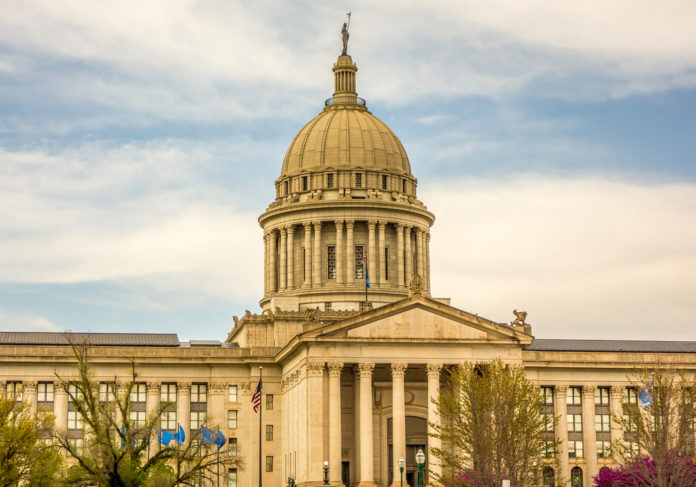By Tim Farley, News Editor – State lawmakers have no choice but to find recurring revenue sources when the 2018 regular session begins next month, an area senator said this week.
Sen. Stephanie Bice (R-Oklahoma City) was adamant about finding new revenues that can help solve the state’s budget crisis.
“For the three years I’ve been in the legislature, we have used one-time funds to solve problems, but we don’t have the ability to do that anymore,” she said. “We’ve used the Rainy Day fund, which is almost all gone, and revolving funds which shouldn’t have been used because they’re more like operational funds.”
But the problems are more complicated than finding new revenue sources. The House and Senate must approve any tax hike and that will take a 75 percent majority in both chambers, which is another issue that will be addressed in the next session. After that, a revenue measure must get the governor’s signature.
If a revenue package isn’t approved, legislators will have no other option but to cut funding from state agencies, which has been a problem for state health care-related services and the Department of Human Services for the last three years, Bice said.
Constituents are telling Bice and her colleagues to fix the state’s financial problems, but they’re not offering suggestions, she said.
“They’re tired of this being dragged on,” Bice said. “They realize how bad the financial mess is and they want it fixed. That’s all I’m hearing lately.”
Bice expressed fear the federal government could intervene and take over some agencies that are underfunded and can’t provide core services to Oklahomans. Bice cited a recent declaration by Department of Corrections chief Joe Albaugh who said his department needs $1 billion to build a new prison while also meeting current bills and needs within the prison system.
“There is a big disconnect out there,” Bice said. “He (Albaugh) needs money and nobody is paying attention. DOC is in dire straits. It’s a possibility the feds could come in and do something like they did with the Pinnacle Plan at DHS.”
Bice pointed out DOC still uses a paper filing system at a time when the department has more inmates than ever and funding isn’t on par with its needs.
In the past, lawmakers have invested heavily in other agencies such as the Department of Transportation and the teacher’s retirement system. More than a decade ago, the legislature committed $350 million annually to the retirement system so it could remain solvent. In addition, lawmakers devised a plan to provide $59.5 million a year for ODOT’s roads and bridges program, which will be capped at $575 million each fiscal year. ODOT did not receive its full $59.5 million last year because of the funding shortage.
“All of that was justified,” Bice said of the plans to assist teacher retirement and ODOT. “But what I’m saying is those funds are unavailable now to take care of other things.”
Meanwhile, a coalition of Oklahoma’s top business leaders have offered a revenue package that would provide for $5,000 teacher pay raises, restructure state and county government and develop revenue that would solve the state’s budget woes.
Part of the plan includes raising the state’s starting gross production tax to 4 percent on all future wells and all existing wells that are currently taxed at 2 percent. Rates would continue to go up to 7 percent after 36 months. The change would cost the industry about $133 million.
The Oklahoma Independent Petroleum Association endorsed the plan Tuesday contingent that all revenue-raising measured presented by the business group and the teacher pay raise is included in the final legislation.
The revenue-enhancing package calls for $800 million in tax increases, including taxes on tobacco and e-cigarettes, energy, motor fuels and personal income tax. This would include a personal income tax increase that would affect 45 percent of Oklahomans.
“They (Step Up Oklahoma) are proposing double what the Senate passed in the 2017 special session, which was $485 million and that include a $3,000 teacher pay raise and a $1,000 state employee pay raise. I can’t justify why we need $800 million in tax revenue.
That package will have to pass the House before it comes to the Senate and I don’t think it will get the support it needs.”






